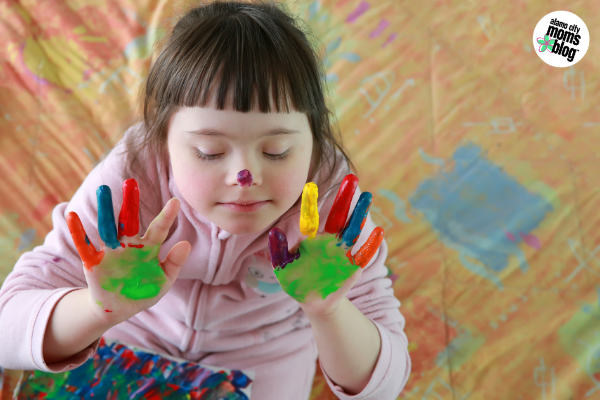It is with immense gratitude that I profess my awe in all that you do. I know you went to college to become a general education teacher. You selected this profession despite the long hours with little pay. The district you work within probably doesn’t have the means to fully support you as you juggle state assessment preparation, crowded classrooms, needy parents, and diverse students. Statistically, I know you are spread thin.
In your room, there may be a student who has a “label,” one you didn’t plan for in those college courses, one whom others think belongs in the special education classroom, one you may not feel equipped to teach. Perhaps this student has a language delay or behavioral issues that impair their ability to access the curriculum exactly as you teach it to their peers. They may look and act different than most of the kids staring back at you from their desks. This student will require you to follow an individualized education plan, be flexible, meet with committees, and think outside the box most all of the time.
We both know that the law requires special education students to be allowed in general education classrooms when it is the least restrictive environment for them. While some children are included for lunch and specials with peers and some are exclusively taught in a general education classroom, you are the bright face smiling back at them, the name on the bus tag and report cards.
Parents advocate for inclusion for their child with special needs every single day, as most live in a community of segregation. Parents of children with any disability want their child to give back to the world, not just be supported by it. Many times these parents may seem defensive and cautious as they seek answers to these important questions: Will you like my child? Will you put up with their differences so they can model themselves after their peers? Do you believe in them? Parents of children with special needs balance their need for support and knowledge with assertiveness and advocacy because, you see, we have been our child’s voice all along, and we always will be.
In addition to the multiple doctors, therapists, and care providers, our children need you. You set the tone for an inclusive environment in your classroom. You have the power to remain patient with a student who may work 10 times slower and 12 times harder. You communicate with the parents at home who cry in fear of what another year of bullying or complacency may do to their child’s future. You are the voice who advocates for these students, because they are yours and they deserve your professional advice when it comes to future planning.
You are the CEO of Inclusion, guiding a team of young minds. You work fervently to integrate all students in a lesson or an activity. You try new ways to connect knowledge with differing minds. You are writing the future for not only the child who may struggle to read or write, but the ones who breeze through every lesson. They see that you don’t give up on the ones who need your help most. They receive the message that these students are worthy. When the kid sitting next to a child with special needs one day owns her own company, she may be open to hiring someone with a disability because of what she saw in her elementary classroom. You won’t be alone; you will find support from specialists such as speech-language pathologists, occupational therapists, and special education teachers, and you’ll learn strategies that will help you with neuro-typical students as well.
There will be challenges, but your efforts will be rewarded.
This student will teach you and their peers the value of patience, kindness, and tolerance. Research shows that students in an inclusive classroom can have higher academic achievements, a reduced fear of human differences, increased comfort and awareness, increased tolerance of others, more effective communication with all peers, increased self-esteem, less prejudice, and a higher responsiveness to others’ needs. This student with a disability will challenge perceptions daily, and your efforts will promote an inclusive community in the future!
In one generation we could change so much, and it starts in your class. It starts with you.
With gratitude,
Your biggest cheerleader













Another insightful subject matter so informative and so important. Danielle is a fascinating author, superbly written. Looking forward to more of her writings.
Thank you so much for your compliments!